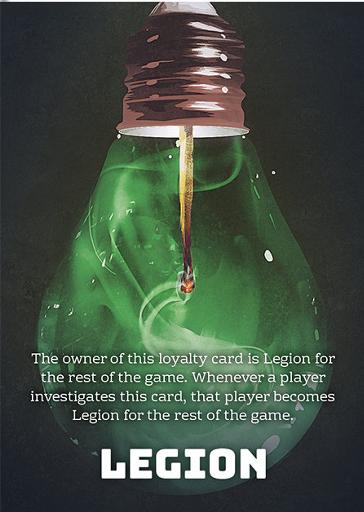Human Punishment
is a social deduction game designed by Stefan Godot.
This is one that I spotted at Essen 2018, and as with Death over
the Kingdom from the previous year I was drawn in by the art – in
particular, the Legion card. It's understated and effective.

In spite of the pretentious subtitle of "Social Deduction 2.0", this
is what I think of as a second-generation social deduction game, with
three factions and slightly different victory conditions for each
(though any player can win by being the sole survivor).
It also goes a step beyond simply avoiding elimination (which is what
in my taxonomy distinguishes first-generation games, such as The
Resistance, from early attempts like Werewolf): in The Resistance
it's possible to be an outed spy and have very little influence on the
game thereafter. Here, there are distinct stages to the game: first
everyone's trying to get some idea who their fellow faction members
are, but soon enough they start picking up weapons and shooting each
other.
But when you pick up a weapon, you have to aim it at a specific
player, then survive a full round of everyone else's actions before
you can fire it.
There's also a splendid faction system, in which you have three cards,
one ID and two Loyalty: all of these can have faction symbols on them,
and whichever symbol you have most of is your faction. For now,
because that can change.
So there's no initial eye-shutting phase, and no side knows more than
any other side. On your turn, you can look at a loyalty card, which
will give you a hint as to which way someone's leaning, but no
certainty. When the shooting starts, you can choose to take damage or
turn your cards face-up; when your ID card is revealed, it'll set off
some kind of special power.
It feels a bit random at times, and program cards contribute to that;
these are effects that you can use to boost yourself or against other
players, and you can hold up to two of them. This in turn means that
play can drag a little; I've played a few games with random strangers
on Tabletop Simulator, and they've been done in ten minutes, while
I've seen face-to-face games go on for nearly an hour, which is really
too long to be fun.
Another problem is that English isn't Godot's first language; both the
rulebook and the text on the cards are often unclear. This is
apparently being fixed in the new printing, but for now it can be
awkward to try to work out what's going on when you can't discuss a
card with anyone else.
This is one of the rare modern games to feature player elimination.
There are ways for a dead character to have a continuing involvement
in the game and even to be brought back in, but they're not entirely
reliable, and I'd have liked it better if this could have been
avoided. This is another reason to play quickly and, as in Coup,
end the round before an eliminated player can get fed up.
But still, this is climbing the ranks of my favourite social deduction
games. It's not going to displace The Resistance with all its
variety any time soon, but I'm already likely to reach for this before
the surprisingly good Homeland, especially if I have a group of
players who can move fast rather than agonise over every turn. It
helps that it can be played with any number of players from 4 to 16;
in larger games the loyalty cards are shared between adjacent players,
and I haven't yet tried this mode.
A kickstarter
is running now for the expansion, which offers the possibility of
buying the base game too; it ends on 28 February.
Comments on this post are now closed. If you have particular grounds for adding a late comment, comment on a more recent post quoting the URL of this one.